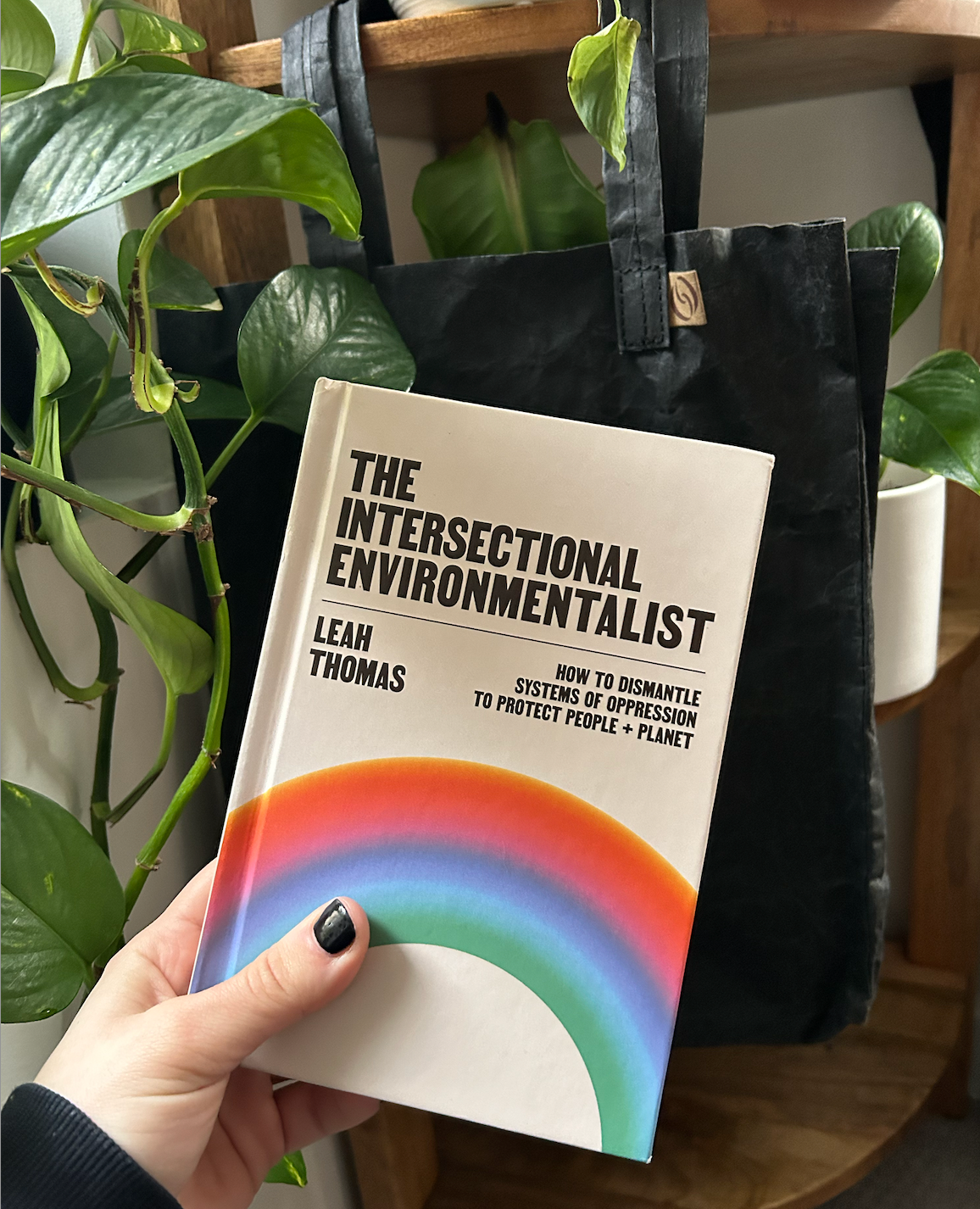March Book Club: Intersectional Environmentalism by Leah Thomas


I was given this book when I graduated from my grad program in Environmental Studies by my sister and kept picking it up to read excerpts but have not had the chance to sit down and go all the way through it. I thought what better way than to share this read with a bigger audience and hopefully open up a discussion between those around you! Leah Thomas's "Intersectional Environmentalism: How to Dismantle Systems of Oppression to Protect People + Planet" is this month's Out of the Woods® Book Club pick. And just in time for Spring and Earth day - a book that celebrates people + planet while finding ways to protect both!
What is Intersectional Environmentalism?
Think of it as the marriage of environmental justice and social justice. It recognizes that environmental issues like climate change, pollution, and resource depletion don't impact everyone equally. Instead, they disproportionately burden marginalized communities, often due to historical and ongoing social injustices. This book delves into these complexities, exploring how race, class, and other identities intersect with environmental concerns. Leah Thomas is an environmental justice scholar and the founder of the Intersectional Environmental Justice Collaborative, a nonprofit organization dedicated to amplifying the voices of marginalized communities in the environmental movement. Everything she discusses in her book is from her experiences as an activist in this space, from those who came before her to where we need to go.
Why is it Important?
By understanding the interconnectedness of these issues, we can create more equitable and sustainable solutions. This book empowers us to move beyond traditional environmentalism, which often overlooks the experiences of marginalized communities. It encourages us to become active allies and work towards a future where environmental protection and social justice go hand-in-hand.
How Does it Connect to Sustainability?
True sustainability isn't just about recycling and reducing our carbon footprint; it's about creating a just and equitable world for all. By addressing the systemic inequalities that contribute to environmental issues, we can build a more sustainable future for everyone.
Ready to Dive Deeper?

Let us know if you will be reading along with us this month! Follow @outofthewoodsbags on instagram for our next books and make sure to comment and let us know what you thought of March's pick.
